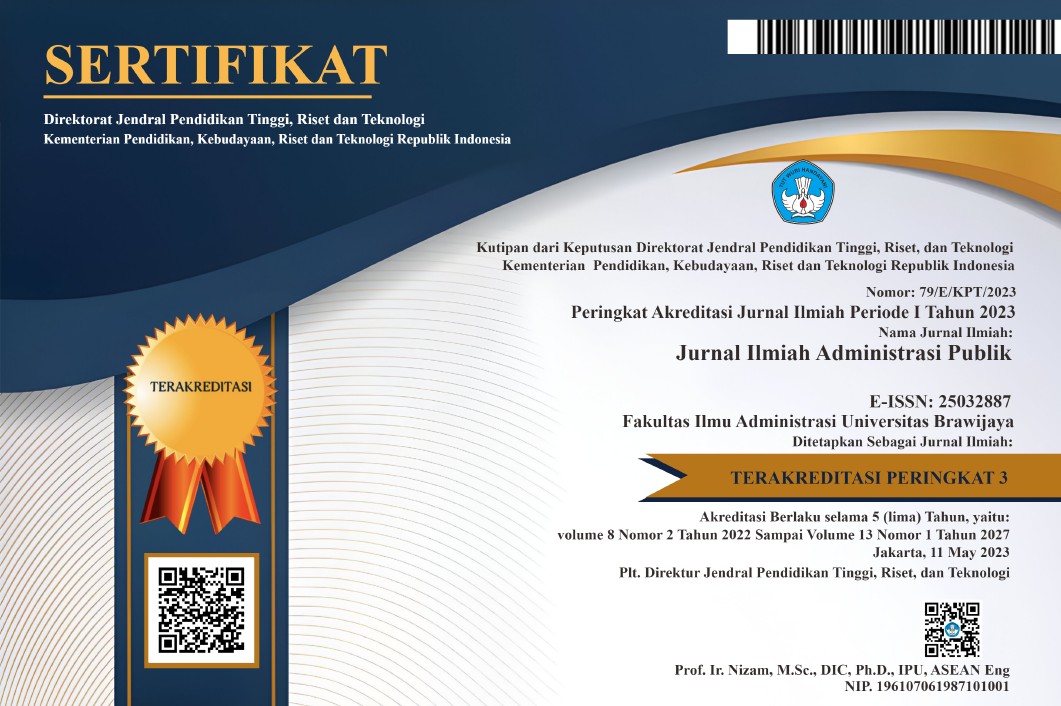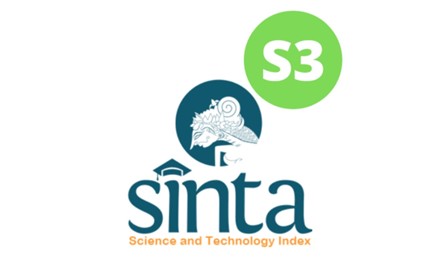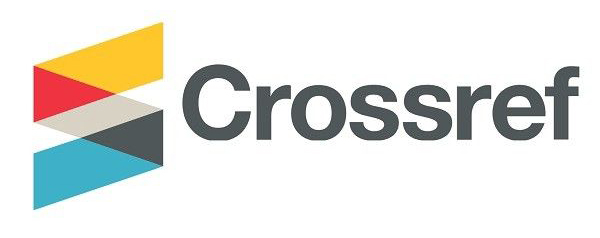Farmer Empowerment in Processing of Shallot Agricultural Products in Sukomoro Municipality, Nganjuk Regency
DOI:
https://doi.org/10.21776/ub.jiap.2022.008.03.5Keywords:
farmer empowerment; shallot agricultural products; Sukomoro MunicipalityAbstract
Nganjuk Regency is one of the areas that has shallot producing centers in East Java. It even ranks 5th out of the top 10 shallot producing regions in Indonesia. Shallot is one of the leading horticultural commodities in Nganjuk Regency and has good prospects for meeting national consumption, a source of income for farmers, and foreign exchange. The problem is, shallot farmers still have low income due to limited access to business services and capital. The purpose of this study is to describe the process and phases of empowering farmers in the Sukomoro Municipality in processing shallot agricultural products as an effort to increase their ability and competitiveness. This research uses descriptive qualitative method. The results showed that the empowerment carried out resulted in the processing of shallot agricultural products in the form of seeds and fried shallot products. The processing is supported by the awareness phase, the transformation phase, and the improvement phase from the farmers. The inhibiting factors are capital and the Covid-19 pandemic, so that protection from stakeholders is needed.
References
Badan Pusat Statistik. (2013). Luas Panen, Produksi, dan Produktivitas Bawang Merah. BPS Kabupaten Nganjuk.
Friedman, Jhon. (1992). Empowerment: The Politic of Alternative Development. Blackwell.
Hindarti, Sri. (2015). Model Pengembangan Kelembagaaan Pascapanen, Pengolahan Hasil dan Kemitraan Usaha Bawang Merah di Sentra Produksi Melalui Pelatian Dan Pendampingan. Agromix, 151, 10–17. https://doi.org/10.35891/agx.v5i2.780
Ife, J. W. (1995). Community development: Creating community alternatives-vision, analysis and practice. Longman Australia.
Iriyani, Dwi. (2018). Potensi Kabupaten Nganjuk Sebagai Penyangga Suplai Stok Bawang Merah Di Propinsi Jawa Timur. Prosiding Seminar Nasional FMIPA-UT 2018: Peran Matematika, Sains, dan Teknologi dalam Mencapai Tujuan Pembangunan Berkelanjutan (SDGs): 68–77. pp. 1-190. ISSN 2088-0014
Istina, Ida Nur. (2016). Peningkatan produksi bawang merah melalui teknik pemupukan NPK. Jurnal Agro, 3(1), 36-42.
Kartasasmita, Ginandjar, (1996). Pembangunan Untuk Rakyat, Memadukan Pertumbuhan dan Pemerataan. Cides.
Lowisada, Shita Anggun. (2014). Pemberdayaan Kelompok Tani Dalam Meningkatkan Pendapatan Usahatani Bawang Merah. Ilmu Ekonomi 2(2), 3–17.
Miles, M. B., Huberman, A. M., & Saldana, J. (2014). Qualitative Data Analysis: A Methods Sourcebook (Edition 3). Sage Publication.
Moleong, Lexy J. (1999). Metodologi Penelitian Kualitiatif. Remaja Rosdakarya.
Narayan, Deepa. (2002). Empowerment and Poverty Reduction: A Sourcebook. World Bank.
OECD. (2006). Trade, Agriculture and Development Policies Working Togehter. OECD Publishing.
Parson, et. Al, (1994). The Integration Of Social Work Practice. California Wardworth.inc.
Rai, Nyoman. (2018). Dasar-Dasar Agronomi. Pelawa Sari.
Rappaport, J (1984). Studies in empowerment: Introdution to the issue. Prevention in Human Service, 3(2-3), 1-7. https://doi.org/10.1300/J293v03n02_02
Sadono, D. (2008). Konsep pemberdayaan petani: paradigma baru penyuluhan pertanian di indonesia. Jurnal Penyuluhan. ISSN, 2664.
Suharto, Edi. (1997). Pembangunan, Kebijakan Sosial dan Pekerjaan Sosial: Spektrum Pemikiran. Bandung: Lembaga Studi Pembangunan STKS (LSPSTKS).
Suharto, Edi (2005). Membangun Masyarakat Memberdayakan Rakyat. Refika Aditama.
Suhendra, K, (2006). Peranan Birokrasi dalam Pemberdayaan Masyarakat. Bandung: Alfabeta
Sulistiyani, Ambar Teguh. (2007). Konseptualisasi Model Pemberdayaan LSM sebagai Fasilitator Pembangunan. JKAP (Jurnal Kebijakan dan Administrasi Publik), 11(2), 139-157.
Swift, C., & Levin, G. (1987). Empowerment: An emerging mental health technology. Journal of primary prevention, 8, 71-94.
Ulum, Mochamad Chazienul., & Anggaini, N. L. V. (2020). Community Empowerment: Teori dan Praktik Pemberdayaan Komunitas. Universitas Brawijaya Press.
Zimmerman, M. A. (2000). Empowerment theory: Psychological, organizational and community levels of analysis. Handbook of community psychology, 43-63.
Downloads
Published
Issue
Section
Categories
License
Copyright (c) 2023 Jurnal Ilmiah Administrasi Publik

This work is licensed under a Creative Commons Attribution-NonCommercial 4.0 International License.
If your paper is accepted, the author identified as the formal corresponding author for the paper will receive an email prompting them to login into Author Services; where via the JIAP Author Licensing Service they will be able to complete the license agreement on behalf of all authors on the paper.














